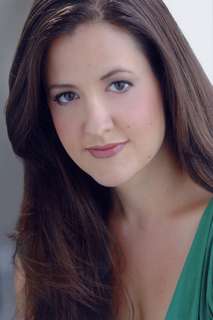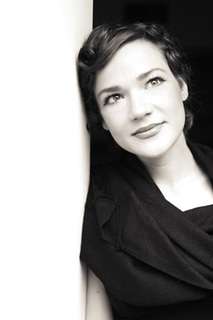|
Back
Animal Forms New York
Ansche Chesed Synagogue
05/09/2010 - & May 7, 2010
Leos Janácek: The Cunning Little Vixen (Sung in English translation from Czech by Norman Tucker and Robert T. Jones. New York premiere of orechestration by Jonathan Dove)
Verunka Vlkova (Sharp Ears, a Vixen), Kathryn Janssen (Fox), José Pietri-Coimbre (Forester), Ari Amir (Poacher, Badger), Oliver Söhngen (Schoolmaster, Mosquito), Annie Pennies (Forester’s Wife), Sara Paar, Clair Molloy (Forester’s sons), Susanna Ketron (Innkeeper’s Wife, Woodpecker), Adrienne Metzinger (Dog), Jane Hoffman (Rooster), Erica Mundy (Hen), Rachel Silverman (Owl, Grasshopper), Anita Moore (Jaybird), Alissa Mori (Frog/Frog’s Grandson), Sara Paar (Cricket), Chloe Pitkoff (Vixen’s Daughter), Andrea and Katrina Gonzales (Dragonflies), Christina Charley Burgos, Dorothy Franco (Ensemble), Lindsay Berat, Andrea and Katrina Gonzales, Columbine Loza, Chloe Pitkoff, Thatcher Pitkoff, Alissa Mori (Fox Cubs)
One World Symphony, Sung Jin Hong (Artistic Director, Music Director and Preparation), Judith Schaff (Rehearsal Pianist)
Adrienne Metzinger (Stage Director), Adrienne Metzinger, Verunka Vlkova, Clarie Molloy, Jane Hoffman (Costume Headpieces)

S. J. Hong (© One World Symphony)
Ten years before Alban Berg turned the dialectic of cinema into his opera Lulu, another Central European, Leos Janácek, transformed anthropomorphic movie cartoons into The Cunning Little Vixen. Yes, he took the opera from a Czech newspaper cartoon, but the rapidity of scene changes, the rapid (if not unmotivated) changes of emotion, the epic of love, birth, death, revenge, humor, Animal Farm-style revolution and tenderness all make their way in about 95 minutes of gorgeous opera.
Right after The Cunning Little Vixen, Janácek wrote the more complicated Makropulos Affair. But both operas by the emancipated enamored 72-year-old dealt with the longing for youth and the acceptance that death leads not to resurrection but to regeneration.
Janácek’s audacity in writing The Cunning Little Vixen is reflected by Sung Jin Hong's choices for One World Symphony. A few years ago, they performed a moving Ariadne auf Naxos in a Brooklyn Church, and have also done Elektra, as well as more traditional opera, frequently in most unlikely halls and churches. Their funds all go to the “right’ charities. And in the case of The Cunning Little Vixen, the profits are going to–what else?–New York’s Humane Society.
The audacity doesn’t only lie in the choice of opera but how they managed to make it stageworthy in Sunday’s synagogue (and apparently Friday’s church) venue. The 28-piece orchestra, in a cut-down orchestration of the opera, played right on the pulpit. The forest of dragonfly, frog, dog, rooster, chickens, grasshopper, badger, mosquito etc etc played their games of love and death across the horizontal space in front of the musicians.
Somehow, Adrienne Metzinger’s staging never seemed crowded, mainly because children were used for the fauna. Delightful kids, they were musically on target in various roles. A youngster named Alissa Mori almost crooned the part of a frog and the frog’s grandson. Rooster and hens arrived clucking and strutting authoritatively (only to be almost immediately slaughtered by our somewhat vicious little vixen).
Where it counted, in some of Janácek’s most touching pastoral music, Vixen and Fox (she with a faux-fur stole and tail, he with dandyish mustache, fox-ears and tail), had the pulpit to themselves in their romantic scene.
(Janácek wrote the libretto, erring only in this scene. In the space of about 18 uninterrupted minutes, Vixen meets Fox, Fox and Vixen “play coy”, Fox goes away, comes back with gift, they go into his den while the birds gossip, a minute later she’s pregnant, and a quick wedding is set up with Woodpecker as Minister. This is not your Walt Disney cartoon!)

K. Janssen (© One World Symphony)
In fact, the music had an eclectic accessibility shown in few other Janácek operas. Almost every scene started with an orchestral interlude, these lightly pastoral. The choruses reminded one of Janácek’s Moravian choral songs. A stentorian horn-and-trumpet fanfare in Act 3 reminded one of the Sinfonietta.
But outside of the Fox-Vixen duet, we still had that talking-chanting Janácek dialogue, with a background of music that, even with repetitions, echoes thoughts and moods.
The wonder is not that Sung Jin Hong conducted with such brisk and sensitive playing, but that One World Symphony was able to garner such excellent singers for each of the many roles. I frankly would have watched Verunka Vlkova, as the Vixen, even if she didn’t sing. What a wealth of moods we had: from the poor tethered vixen to the killer vixen (of arrogant rooster and silly hens!), to lover and mother. But Ms. Vlkova has a most expressive soprano voice to go along with each of these moods. For unknown reasons, we never saw her die, from the shot of the Poacher, for she disappeared down the aisle.
Her fox (if not quite foxy) lover, Kathryn Janssen, was suitably taller, her voice not quite masculine enough, but the duets were well done.
One must give special credit to Adrienne Metzinger. I hadn’t realized that she was the Stage Director until later, but I was fascinated by her entrance as Dog. The movements were absolutely right, her mezzo right in character.
Of the major men’s parts, Ari Amir had the most beautiful baritone role as the Poacher (and earlier, as a rather stupid Badger), and tenor Oliver Söhngen, while less than convincing as a drunkard, was certainly convincing as a singer.

V. Vlkova (© One World Symphony)
Apparently José Pietri-Coimbre had been recently chosen as the Forester, but using the score didn’t detract from his early singing success. Unfortunately, he must have strained his voice in the first two acts, since in the finale, in Janácek’s epiphany, it had weakened considerably.
Yet Janácek’s aggregate picture of the forest and nature was really spot on. One could ignore the background of the synagogue or the lack of scenery or lights. The imaginative headdresses, the wonderful children (who sung Janácek as well as the adults) and the pastoral tones from Sung Jin Hong’s orchestra offered a combination naiveté, gentleness, and tranquility. That Janácek accepted an accepting fatalism to life was almost incidental to this most graceful production.
CODA: A new film, The Oath, offering an exposition (if not an exposé) of two terrorists, is one of the most powerful movies I have seen this year. But this is a music review, and I was fascinated by the not-quite Arabic music. The answer was at the end. The songs were sung by Dawn Upshaw, the music was written by the fecund and splendid Osvaldo Golijov.
Since this is not a movie review column, I can only advise readers to go, if only for the music.
Harry Rolnick
|